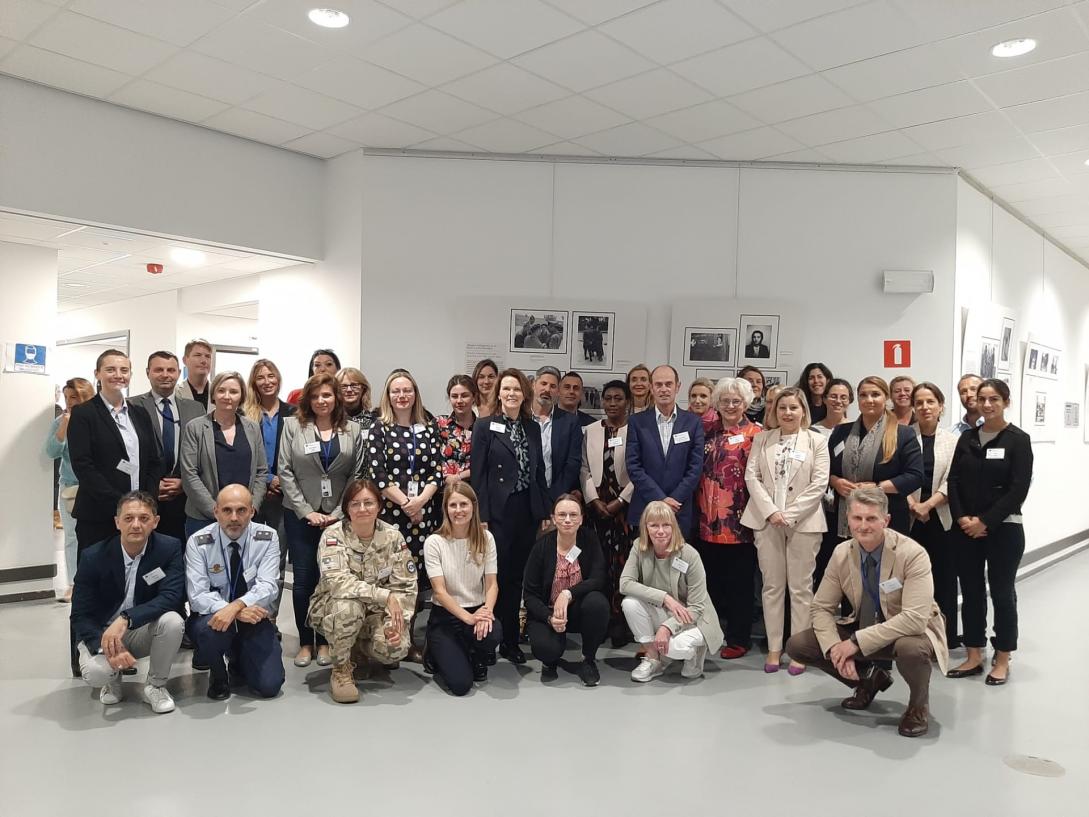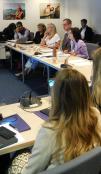12th Annual Meeting of Human Rights and Gender Advisers in CSDP Missions and Operations

Participants travelled to Brussels from the 17 military and civilian missions and operations of the EU. A significant number of Brussels based Headquarters staff also attended. As the meeting had not been held since 2019 participants were particularly eager to exchange ideas and best practices on a variety of topics in the field of human rights and gender equality. The Meeting was opened by Mr Eamon Gilmore, the EUSR for Human Rights and Ms Stella Ronner-Grubačić, EEAS Ambassador on Gender and Diversity.
The EUSR highlighted his role in guiding the implementation of the Action Plan on Human Rights and Democracy 2020-2024.
“While the global human rights environment may be facing challenges not seen in decades, these activities show that we can attempt at least to stop and reverse the recession we are witnessing. It is not an insurmountable challenge. Complacency is not an option.”
Against the backdrop of significant setbacks on women's rights and gender equality, the EU has launched the third Gender Action Plan 2021-2025 (GAP III) putting the EU on the map as a global leader for gender equality and women's empowerment. Besides leading by example, investing more in gender mainstreaming mechanisms is a priority for the EU. To this end, Ms Stella Ronner-Grubačić referred to the good practice established in the civilian CSDP missions of developing gender focal points structures, which could be an inspiration for other EU entities. In addition to the fulltime Gender Advisers, over 100 women and men currently serving as gender focal points in civilian Missions contribute on a daily basis to ensure that all different aspects of the mission’s work is carried out with a gender perspective, in line with EU policy.
One of the main topics discussed was the results of the recently finalised Report of the Follow-up Baseline Study on Integrating Human Rights and Gender Equality into CSDP and the implementation of new set of recommendations formulated in the Report. The study shows that there has been significant progress since the first Baseline Study Report, issued in 2016, particularly in civilian CSDP. An increased number of human rights and gender experts in the field and at the Headquarters level as well as new operational tools has clearly translated into concrete results. However, challenges still remain in particular regarding the low representation of women in civilian and military missions and operations as well as getting the leadership and all staff fully on board in ensuring that human rights and gender mainstreaming are mainstreamed throughout the planning and conduct of missions and operations. The purpose of new recommendations is to propose solutions for the remaining challenges and they will be progressively implemented over next few years.
On this occasion, the Permanent Representation of Estonia hosted a reception for participants to continue the discussion with Member States’ delegates.





